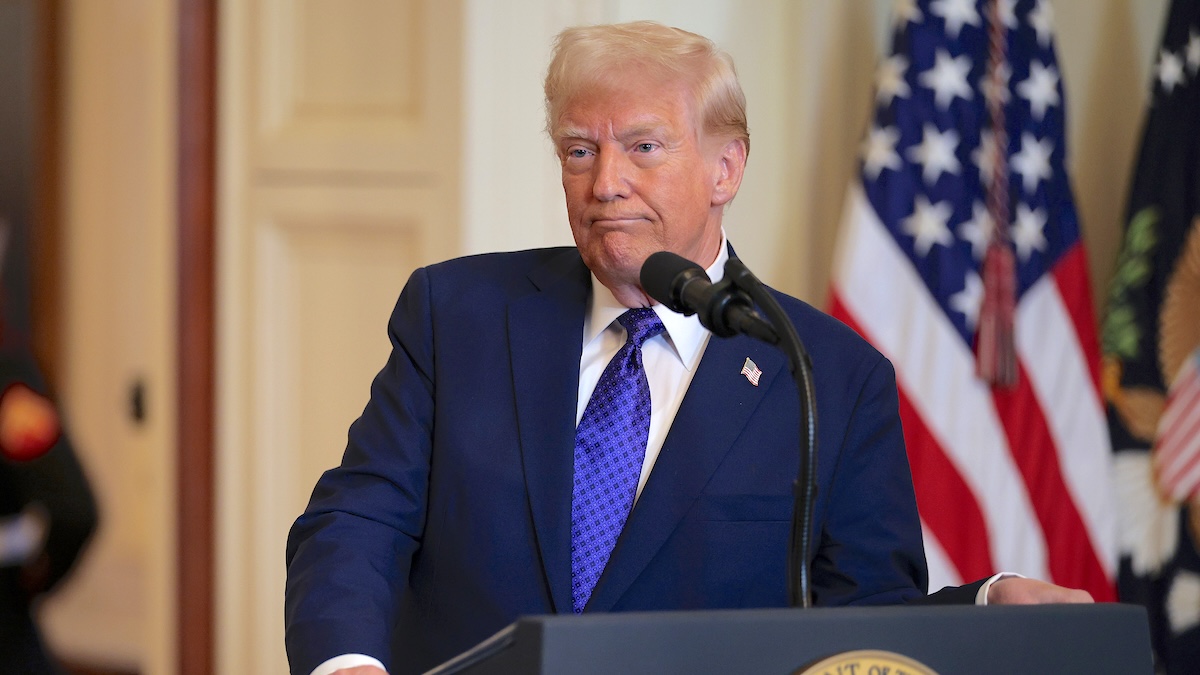‘Birthright citizenship is unconstitutional’: Trump’s administration just insulted the children of immigrants across the nation

On Tuesday White House Press Secretary Karoline Leavitt communicated some of the Trump administration’s abhorrent policies in her first ever press conference. Among the topics covered were the controversial funding pause, a stark warning to the press, and a misleading claim about birthright citizenship.
“This administration believes that birthright citizenship is unconstitutional,” Leavitt asserted. She even doubled down and said President Trump would take this fight all the way to the Supreme Court.
One of Trump’s campaign promises was to end birthright citizenship, the long standing practice in the United States that if you are born here, you are a citizen regardless of your parent’s immigration status. He made good on that threat after being sworn in on January 20 signing an executive order to that end. This overreach of power goes directly against the constitution, something Trump swore in his oath of office to uphold. Trump’s legal team’s argument against birthright citizenship is that children of undocumented immigrants cannot be citizens because they are not “subject to the jurisdiction” of the United States. This is a blatant inaccuracy. Undocumented families follow the same laws as citizens and even pay taxes.
Such rhetoric is a profound insult to children of immigrants. It aims to delegitimize their existence and imply that they are not entitled to basic rights. These dangerous words suggest they are second class citizens who do not deserve to be in the country. It divides, dehumanizes, and does not take into account their substantial cultural and economic achievements. But what do we expect from an administration where diversity, equity, and inclusion are dirty words?
Birthright citizenship is enshrined in the 14th amendment. “All persons born or naturalized in the United States, and subject to the jurisdiction thereof, are citizens of the United States and of the State wherein they reside,” it reads. After the Civil War part of former slaveholding states’ readmission into the Union was accepting this principle as the law of the land.
There are many years of Supreme Court precedent upholding the 14th amendment. In the 1898 case United States v. Wong Kim Ark, an American citizen born in San Francisco, Wong Kim Ark, was denied reentry to the United States because government officials questioned his legitimacy. He had left the country to visit his Chinese parents. In this case, the court claimed birthright citizenship was “ancient and fundamental.” Almost one hundred years later, in 1982’s Plyler v. Doe, the court found that the 14th amendment also applied to undocumented immigrants and their kids.
One day after Trump’s executive order was issued, 22 states sued to block it. “The president cannot, with a stroke of a pen, write the 14th Amendment out of existence, period,” New Jersey Attorney General Matt Platkin stated. On Thursday Jan. 23, Judge John Coughenour issued a temporary restraining order blocking Trump’s action for fourteen days. He called the executive order “blatantly unconstitutional” and wondered how Trump’s lawyers would ever sign off on it.
“I have been on the bench for over four decades. I can’t remember another case where the question presented was as clear,” Coughenour stated. Another hearing is scheduled on February 6 to decide if a preliminary injunction is warranted which would block the order on a more long term basis while the case is tried. While many wait to hear the status of their citizenship, the country at large has to decide what is more important—upholding its constitutional promises or abandoning them for the promise of cheaper eggs.
Have a tip we should know? [email protected]
